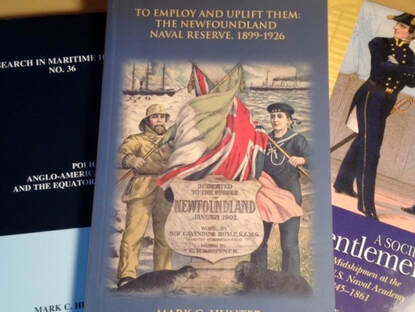Mark C. Hunter, PhD
Mark C. Hunter is a naval/military historian of the Atlantic world. His specialization is the 19th- and early-20th centuries, with a focus on maritime economic history; non-state actors – like pirates, slave traders and smugglers; and maritime, military and naval education and employment. His work uses the broad strokes of economic theory to understand the behavior of non-state actors and their reaction to state intervention in their “illegal” marketplaces. In addition, Dr. Hunter has studied extensively the transition of youth to adulthood and their recruitment, retention, professionalization and education as US Navy officers. He has also written on similar efforts by the Royal Navy to recruit and train reservists and the role of naval reserve work in a person’s employment cycle. He has also studied how nations use navies as safety valves in international affairs and British, Canadian and Newfoundland relations while attempting to police rum-running during the prohibition era and uphold international obligations and agreements.
